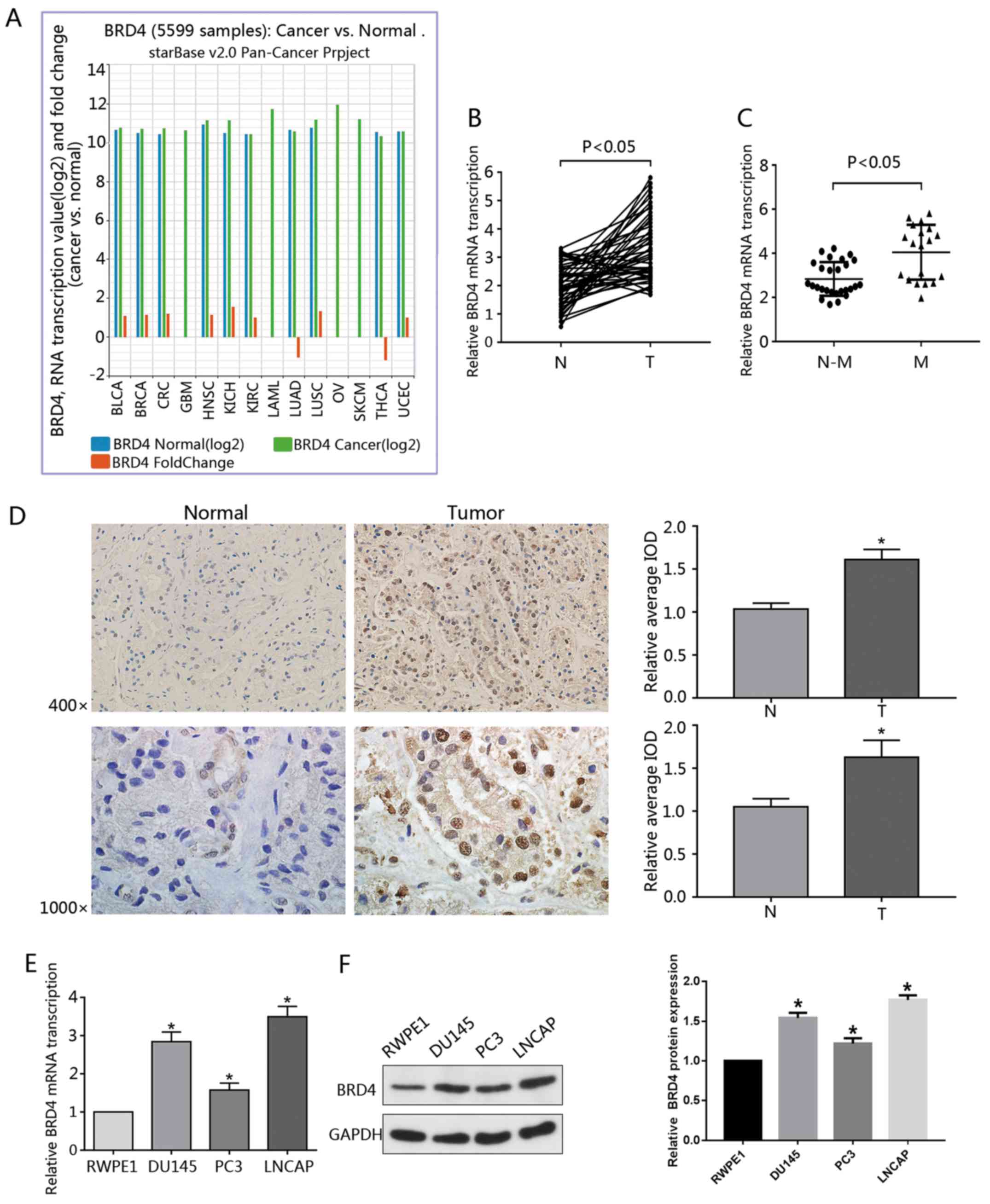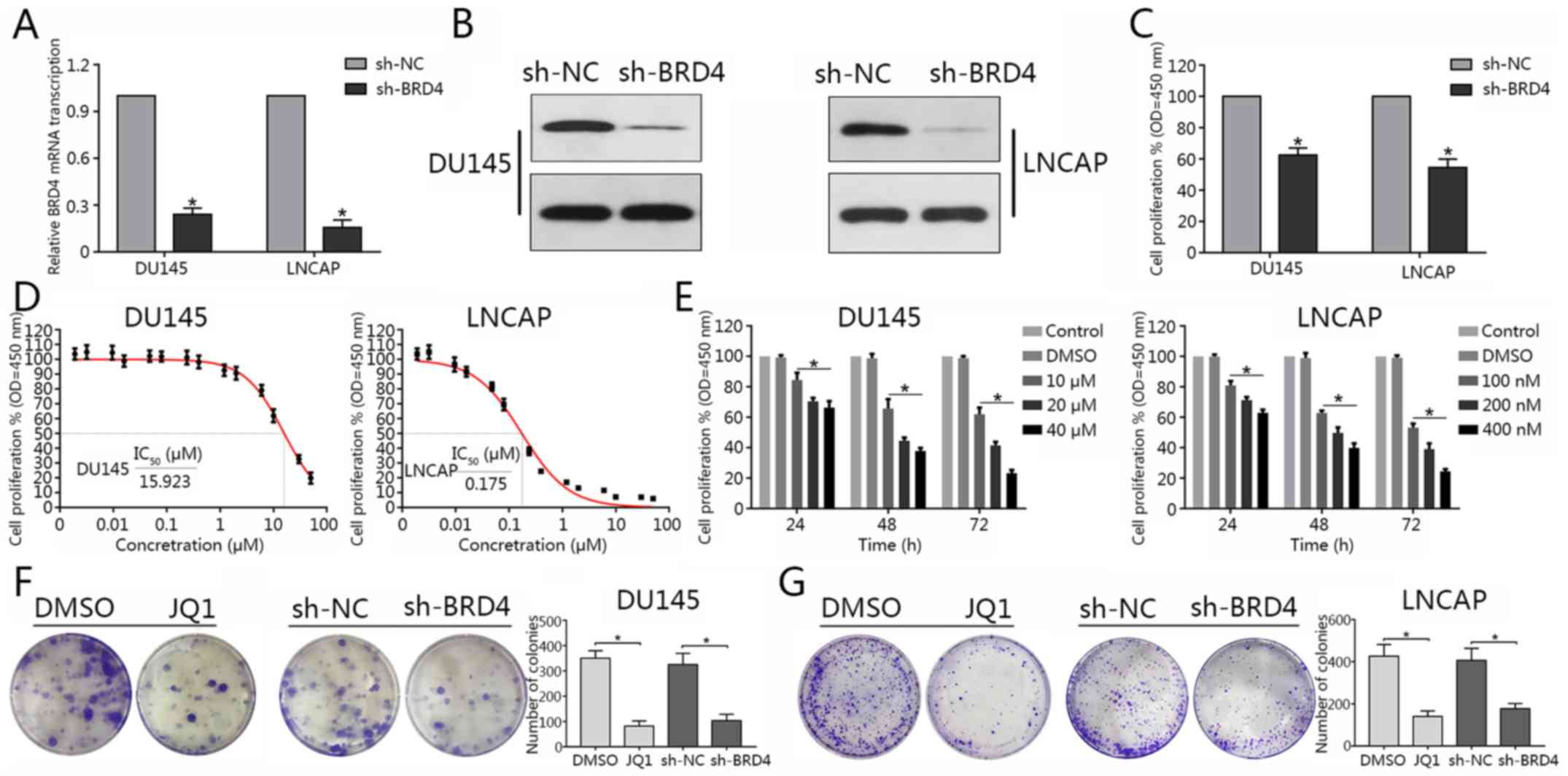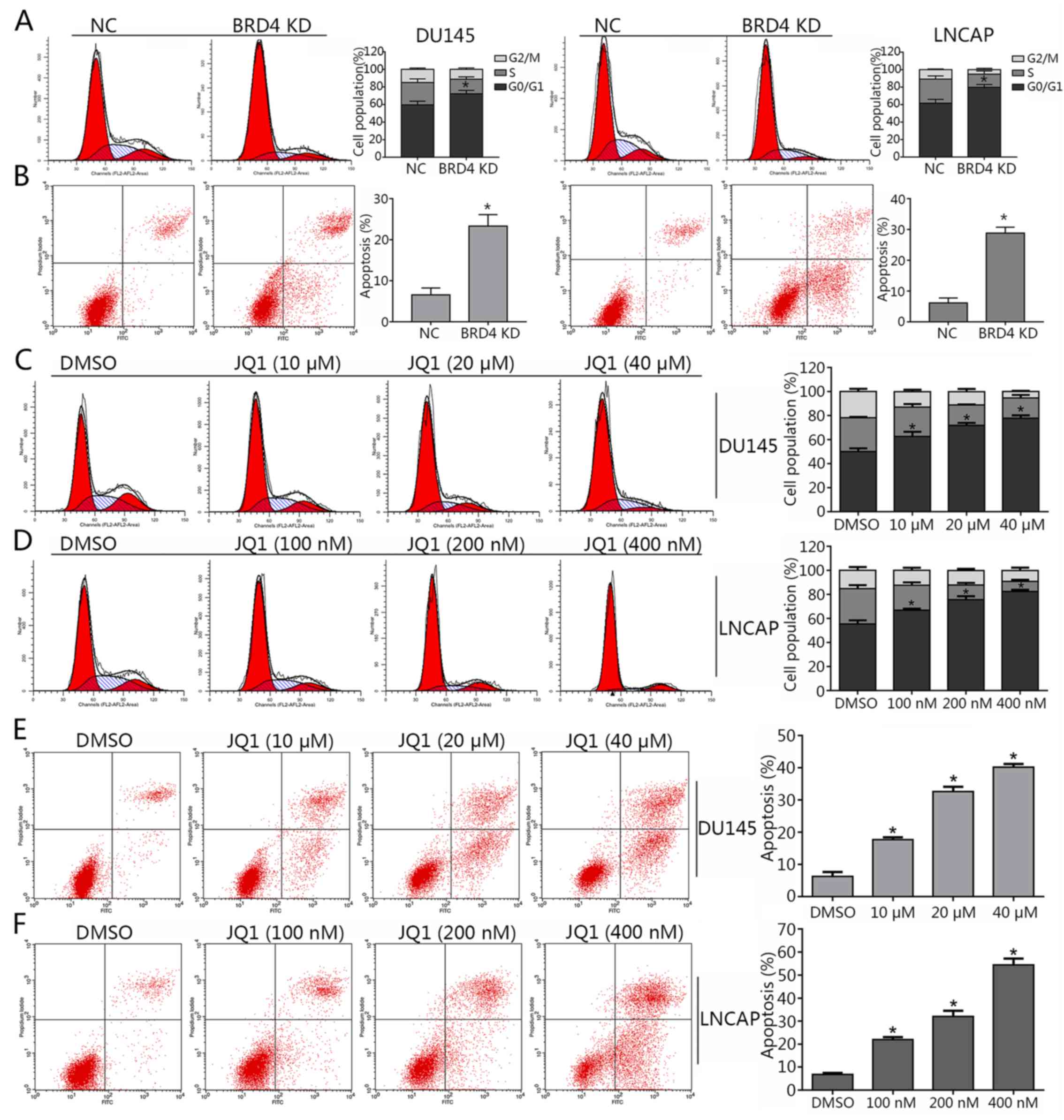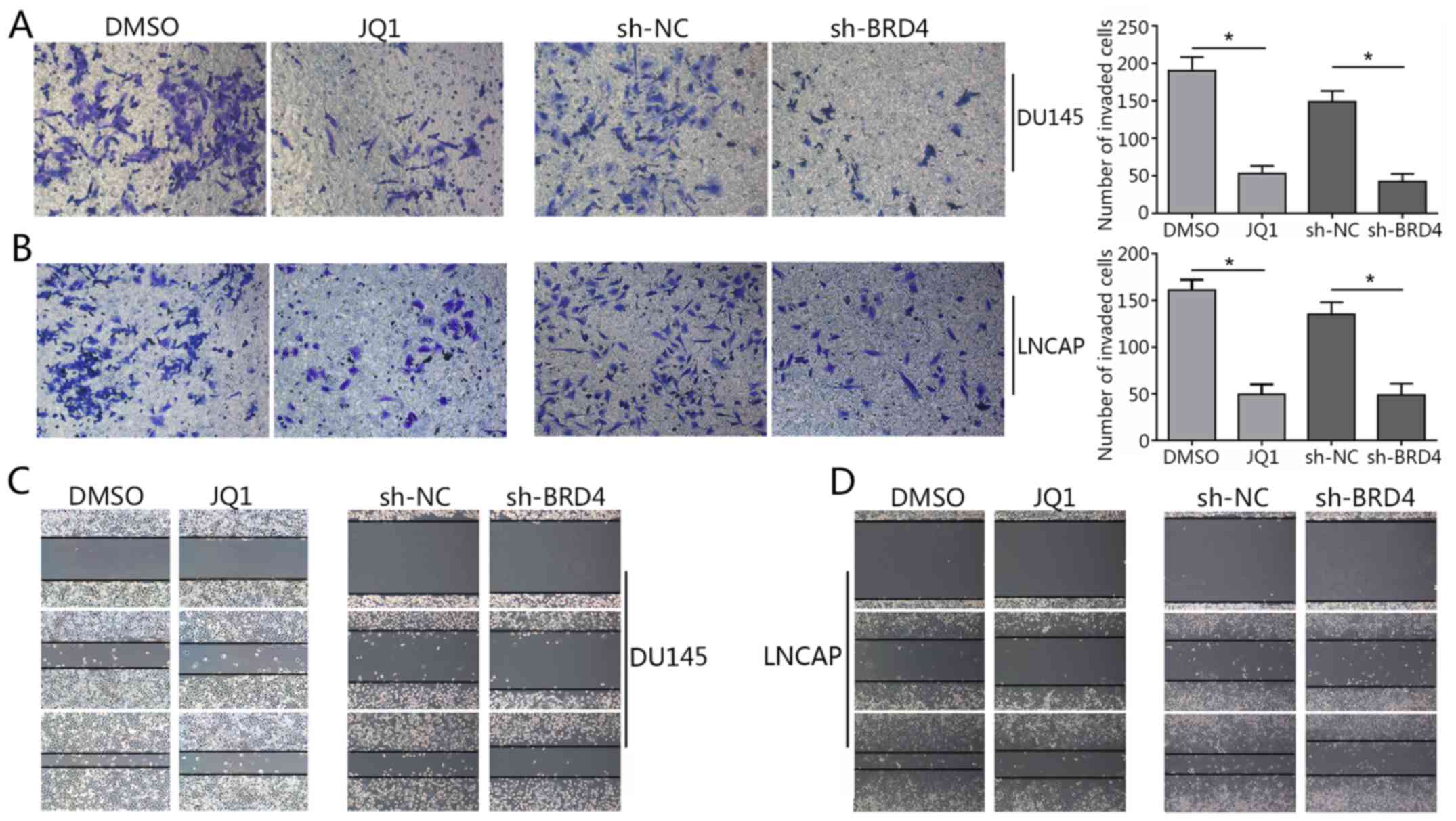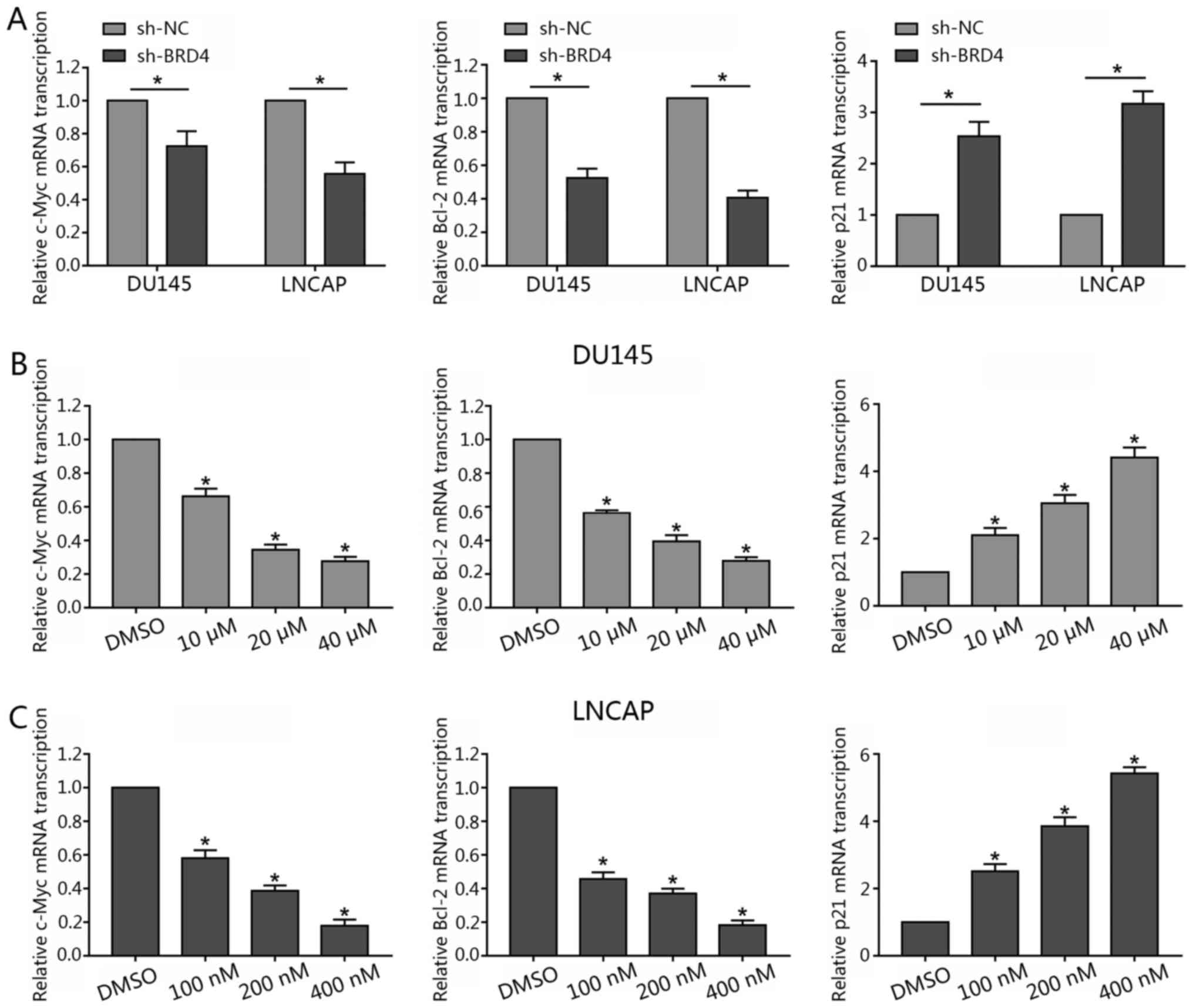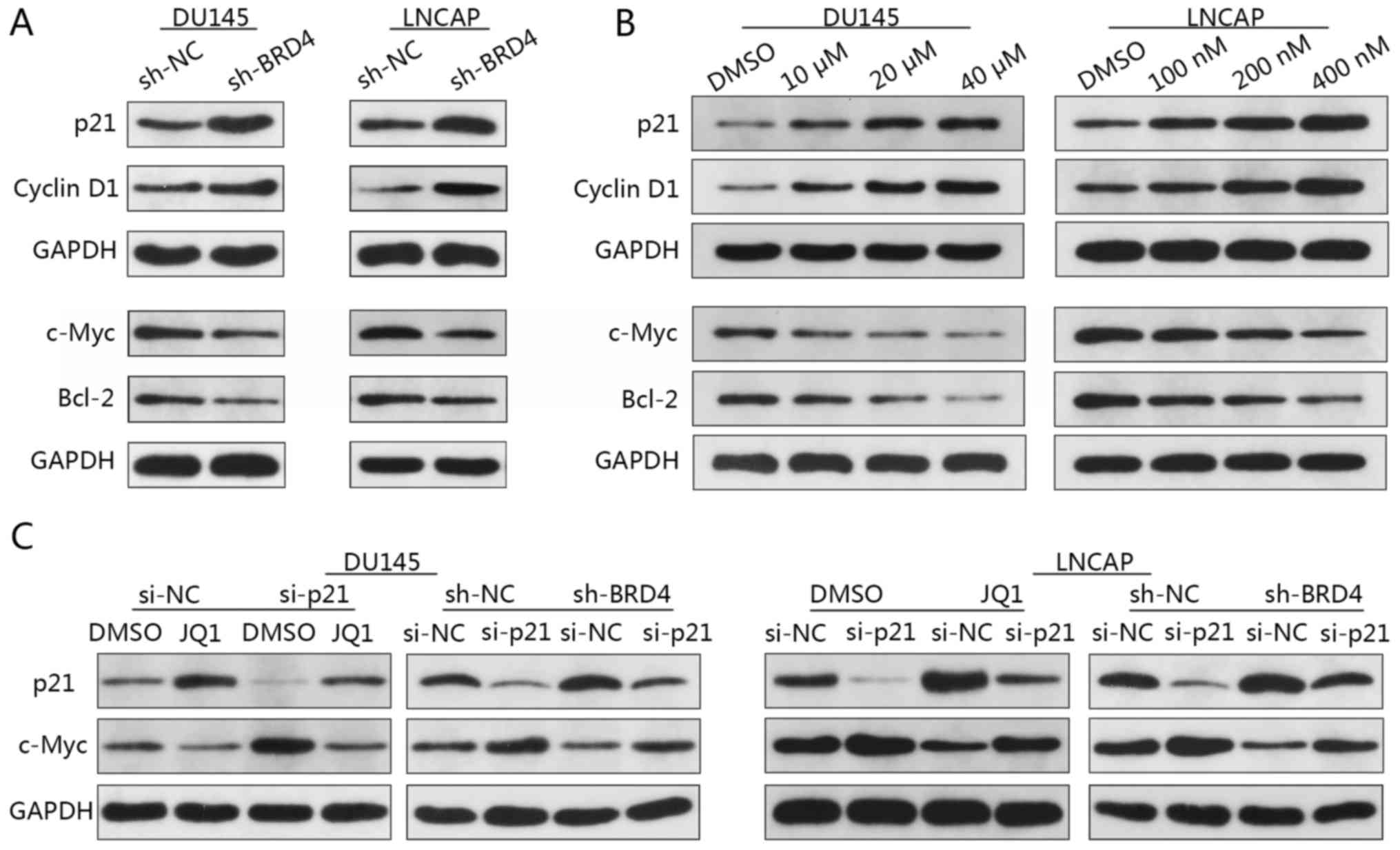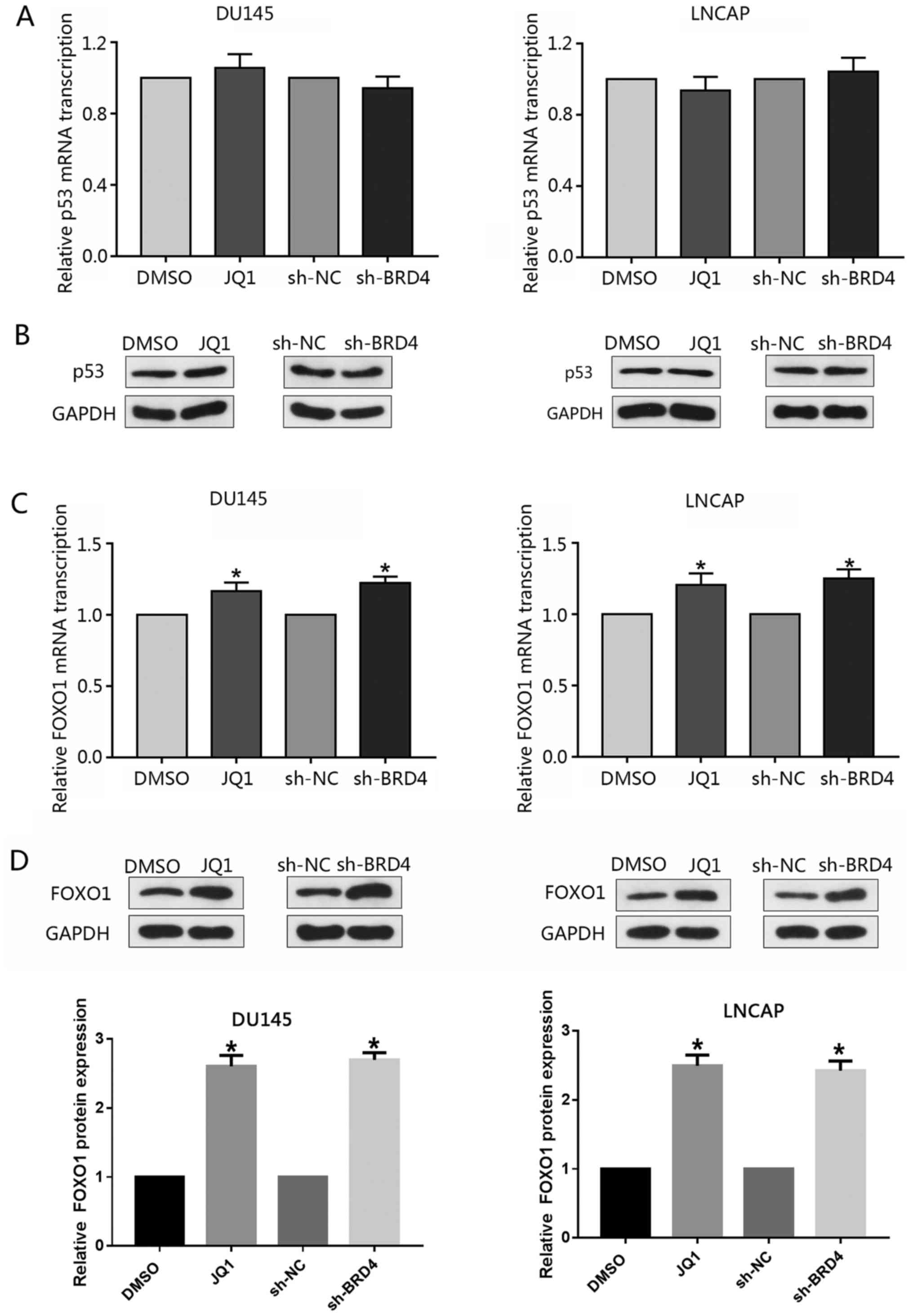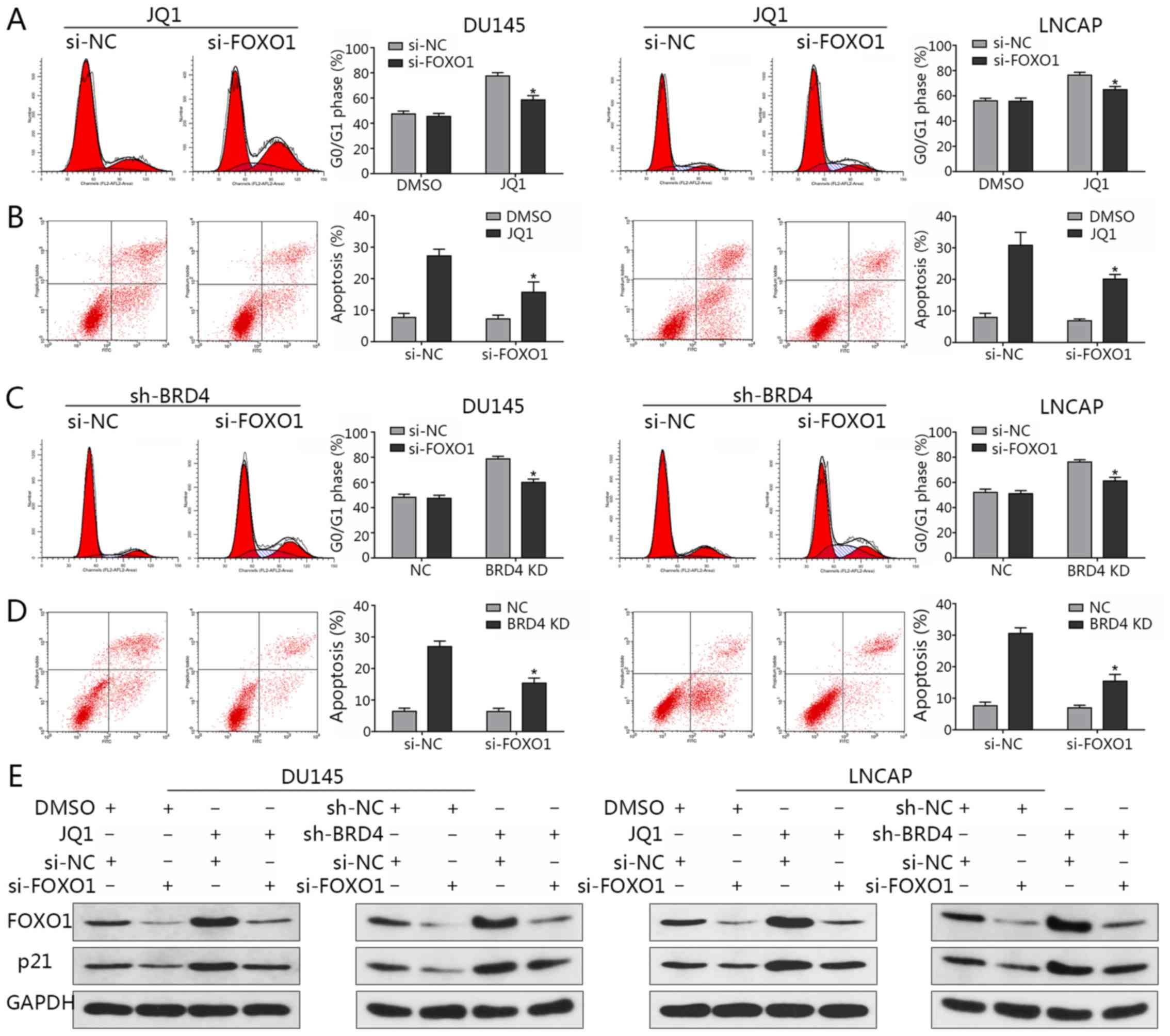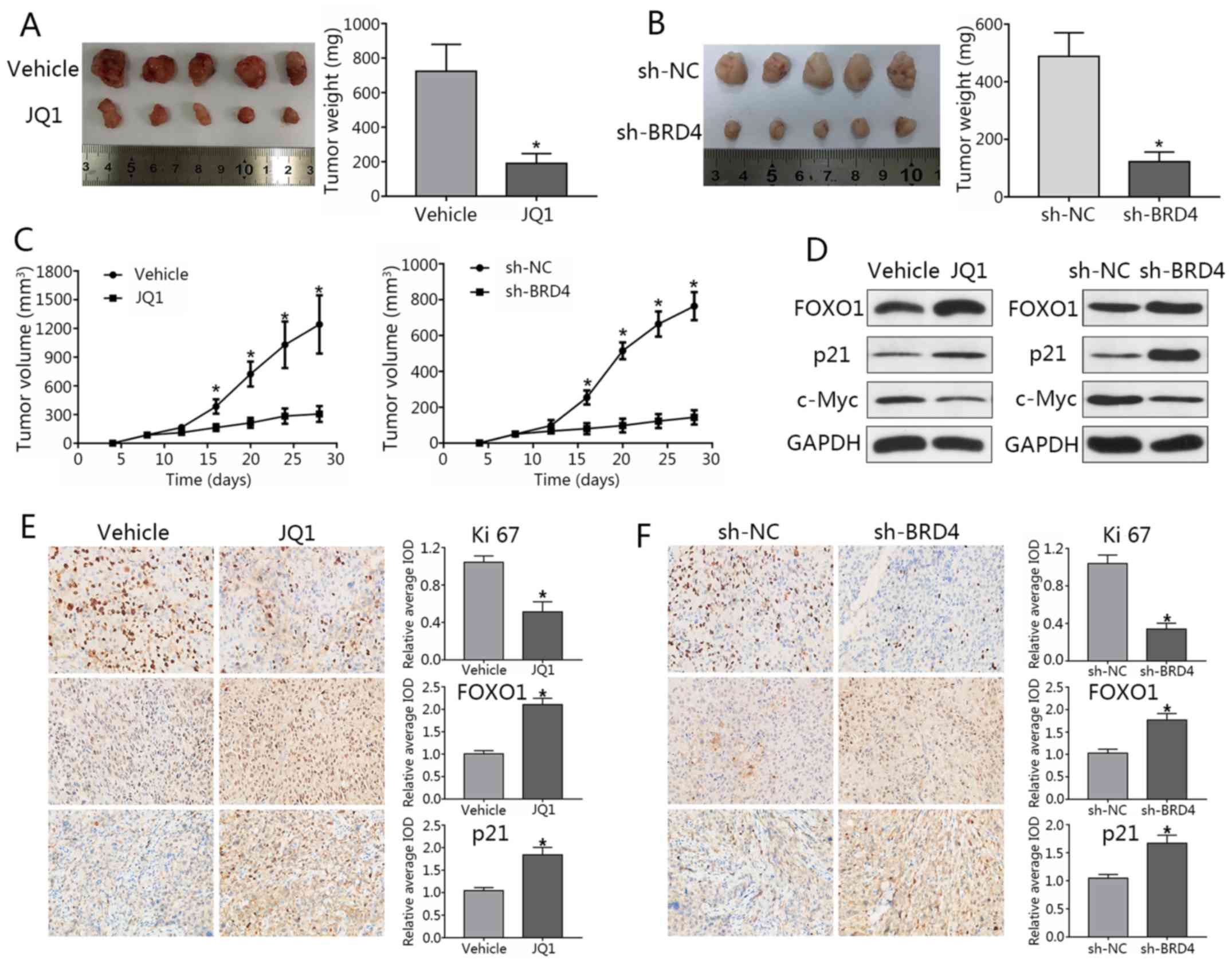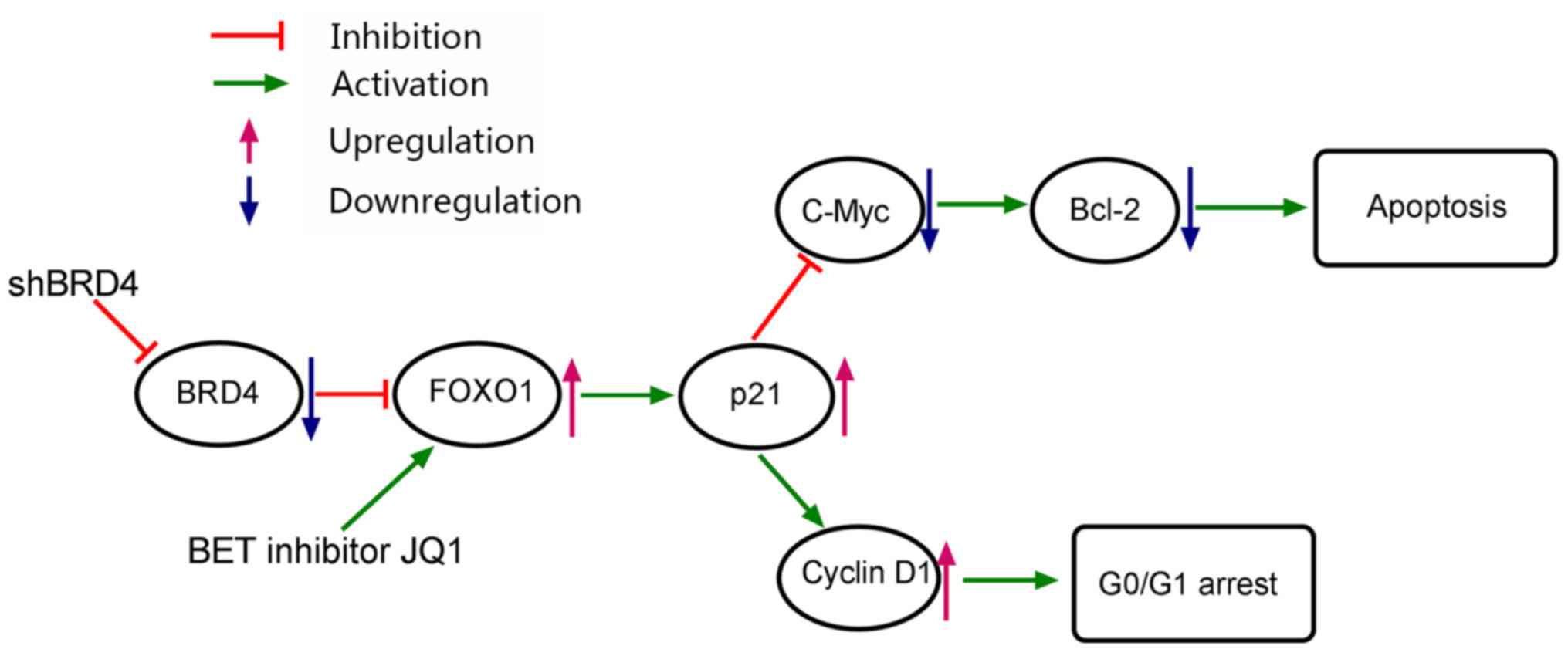|
1
|
Siegel RL, Miller KD and Jemal A: Cancer
Statistics, 2017. CA Cancer J Clin. 67:7–30. 2017. View Article : Google Scholar : PubMed/NCBI
|
|
2
|
Ferlay J, Soerjomataram I, Dikshit R, Eser
S, Mathers C, Rebelo M, Parkin DM, Forman D and Bray F: Cancer
incidence and mortality worldwide: Sources methods and major
patterns in GLOBOCAN 2012. Int J Cancer. 136:E359–E386. 2015.
View Article : Google Scholar
|
|
3
|
Zhu X, Albertsen PC, Andriole GL, Roobol
MJ, Schroder FH and Vickers AJ: Risk-based prostate cancer
screening. Eur Urol. 61:652–661. 2012. View Article : Google Scholar
|
|
4
|
Attard G, Parker C, Eeles RA, Schroder F,
Tomlins SA, Tannock I, Drake CG and de Bono JS: Prostate cancer.
Lancet. 387:70–82. 2016. View Article : Google Scholar
|
|
5
|
Mullins JK, Feng Z, Trock BJ, Epstein JI,
Walsh PC and Loeb S: The impact of anatomical radical retropubic
prostatectomy on cancer control: The 30-year anniversary. J Urol.
188:2219–2224. 2012. View Article : Google Scholar : PubMed/NCBI
|
|
6
|
Wilt TJ, Brawer MK, Jones KM, Barry MJ,
Aronson WJ, Fox S, Gingrich JR, Wei JT, Gilhooly P, Grob BM, et al:
Radical prostatectomy versus observation for localized prostate
cancer. N Engl J Med. 367:203–213. 2012. View Article : Google Scholar : PubMed/NCBI
|
|
7
|
Jung M, Gelato KA, Fernandez-Montalvan A,
Siegel S and Haendler B: Targeting BET bromodomains for cancer
treatment. Epigenomics-Uk. 7:487–501. 2015. View Article : Google Scholar
|
|
8
|
Meloche J, Potus F, Vaillancourt M,
Bourgeois A, Johnson I, Deschamps L, Chabot S, Ruffenach G, Henry
S, Breuils-Bonnet S, et al: Bromodomain-Containing protein 4: The
epigenetic origin of pulmonary arterial hypertension. Circ Res.
117:525–535. 2015. View Article : Google Scholar : PubMed/NCBI
|
|
9
|
Chen R, Yik JH, Lew QJ and Chao SH: Brd4
and HEXIM1: Multiple roles in P-TEFb regulation and cancer. Biomed
Res Int. 2014:2328702014.PubMed/NCBI
|
|
10
|
Noguchi-Yachide T: BET bromodomain as a
target of epigenetic therapy. Chem Pharm Bull (Tokyo). 64:540–547.
2016. View Article : Google Scholar
|
|
11
|
Wu X, Liu D, Gao X, Xie F, Tao D, Xiao X,
Wang L, Jiang G and Zeng F: Inhibition of BRD4 suppresses cell
proliferation and induces apoptosis in renal cell carcinoma. Cell
Physiol Biochem. 41:1947–1956. 2017. View Article : Google Scholar : PubMed/NCBI
|
|
12
|
French C: NUT midline carcinoma. Nat Rev
Cancer. 14:149–150. 2014. View Article : Google Scholar
|
|
13
|
Andrieu G, Tran AH, Strissel KJ and Denis
GV: BRD4 regulates breast cancer dissemination through
Jagged1/Notch1 signaling. Cancer Res. 76:6555–6567. 2016.
View Article : Google Scholar : PubMed/NCBI
|
|
14
|
Liao YF, Wu YB, Long X, Zhu SQ, Jin C, Xu
JJ and Ding JY: High level of BRD4 promotes non-small cell lung
cancer progression. Oncotarget. 7:9491–9500. 2016. View Article : Google Scholar : PubMed/NCBI
|
|
15
|
Ferri E, Petosa C and McKenna CE:
Bromodomains: Structure, function and pharmacology of inhibition.
Biochem Pharmacol. 106:1–18. 2016. View Article : Google Scholar
|
|
16
|
Filippakopoulos P and Knapp S: Targeting
bromodomains: Epigenetic readers of lysine acetylation. Nat Rev
Drug Discov. 13:337–356. 2014. View Article : Google Scholar : PubMed/NCBI
|
|
17
|
Sahai V, Redig AJ, Collier KA, Eckerdt FD
and Munshi HG: Targeting BET bromodomain proteins in solid tumors.
Oncotarget. 7:53997–54009. 2016. View Article : Google Scholar : PubMed/NCBI
|
|
18
|
Li GQ, Guo WZ, Zhang Y, Seng JJ, Zhang HP,
Ma XX, Zhang G, Li J, Yan B, Tang HW, et al: Suppression of BRD4
inhibits human hepatocellular carcinoma by repressing MYC and
enhancing BIM expression. Oncotarget. 7:2462–2474. 2016.
|
|
19
|
Togel L, Nightingale R, Chueh AC,
Jayachandran A, Tran H, Phesse T, Wu R, Sieber OM, Arango D,
Dhillon AS, et al: Dual targeting of bromodomain and extraterminal
domain proteins, and WNT or MAPK signaling, inhibits c-MYC
expression and proliferation of colorectal cancer cells. Mol Cancer
Ther. 15:1217–1226. 2016. View Article : Google Scholar : PubMed/NCBI
|
|
20
|
Urbanucci A, Barfeld SJ, Kytola V, Itkonen
HM, Coleman IM, Vodak D, Sjoblom L, Sheng X, Tolonen T, Minner S,
et al: Androgen receptor deregulation drives bromodomain-mediated
chromatin alterations in prostate cancer. Cell Rep. 19:2045–2059.
2017. View Article : Google Scholar : PubMed/NCBI
|
|
21
|
Asangani IA, Dommeti VL, Wang X, Malik R,
Cieslik M, Yang R, Escara-Wilke J, Wilder-Romans K, Dhanireddy S,
Engelke C, et al: Therapeutic targeting of BET bromodomain proteins
in castration-resistant prostate cancer. Nature. 510:278–282. 2014.
View Article : Google Scholar : PubMed/NCBI
|
|
22
|
Mohler JL, Armstrong AJ, Bahnson RR,
D'Amico AV, Davis BJ, Eastham JA, Enke CA, Farrington TA, Higano
CS, Horwitz EM, et al: Prostate Cancer, Version 1.2016. J Natl
Compr Canc Netw. 14:19–30. 2016. View Article : Google Scholar : PubMed/NCBI
|
|
23
|
Li JH, Liu S, Zhou H, Qu LH and Yang JH:
StarBase v2.0: Decoding miRNA-ceRNA, miRNA-ncRNA and protein-RNA
interaction networks from large-scale CLIP-Seq data. Nucleic Acids
Res. 42:D92–D97. 2014. View Article : Google Scholar
|
|
24
|
Yang JH, Li JH, Shao P, Zhou H, Chen YQ
and Qu LH: StarBase: A database for exploring microRNA-mRNA
interaction maps from Argonaute CLIP-Seq and Degradome-Seq data.
Nucleic Acids Res. 39:D202–D209. 2011. View Article : Google Scholar
|
|
25
|
Livak KJ and Schmittgen TD: Analysis of
relative gene expression data using real-time quantitative PCR and
the 2(−Delta Delta C(T)) method. Methods. 25:402–408. 2001.
View Article : Google Scholar
|
|
26
|
Wu X, Liu D, Tao D, Xiang W, Xiao X, Wang
M, Wang M, Luo L, Li G, Zeng YF, et al: BRD4 regulates EZH2
transcription through upregulation of C-MYC and represents a novel
therapeutic target in bladder cancer. Mol Cancer Ther.
15:1029–1042. 2016. View Article : Google Scholar : PubMed/NCBI
|
|
27
|
Cheng Z, Gong Y, Ma Y, Lu K, Lu X, Pierce
LA, Thompson RC, Muller S, Knapp S and Wang J: Inhibition of BET
bromodomain targets genetically diverse glioblastoma. Clin Cancer
Res. 19:1748–1759. 2013. View Article : Google Scholar : PubMed/NCBI
|
|
28
|
Lee DH, Qi J, Bradner JE, Said JW, Doan
NB, Forscher C, Yang H and Koeffler HP: Synergistic effect of JQ1
and rapamycin for treatment of human osteosarcoma. Int J Cancer.
136:2055–2064. 2015. View Article : Google Scholar
|
|
29
|
Kumar K, Raza SS, Knab LM, Chow CR, Kwok
B, Bentrem DJ, Popovic R, Ebine K, Licht JD and Munshi HG:
GLI2-dependent c-MYC upregulation mediates resistance of pancreatic
cancer cells to the BET bromodomain inhibitor JQ1. Sci Rep.
5:94892015. View Article : Google Scholar : PubMed/NCBI
|
|
30
|
Georgakilas AG, Martin OA and Bonner WM:
P21: A two-faced genome guardian. Trends Mol Med. 23:310–319. 2017.
View Article : Google Scholar : PubMed/NCBI
|
|
31
|
Yang Y, Blee AM, Wang D, An J, Pan Y, Yan
Y, Ma T, He Y, Dugdale J, Hou X, et al: Loss of FOXO1 cooperates
with TMPRSS2-ERG overexpression to promote prostate tumorigenesis
and cell invasion. Cancer Res. 77:6524–6537. 2017. View Article : Google Scholar : PubMed/NCBI
|
|
32
|
Tinkum KL, White LS, Marpegan L, Herzog E,
Piwnica-Worms D and Piwnica-Worms H: Forkhead box O1 (FOXO1)
protein, but not p53, contributes to robust induction of p21
expression in fasted mice. J Biol Chem. 288:27999–28008. 2013.
View Article : Google Scholar : PubMed/NCBI
|
|
33
|
Litwin MS and Tan HJ: The diagnosis and
treatment of prostate cancer: A review. JAMA. 317:2532–2542. 2017.
View Article : Google Scholar : PubMed/NCBI
|
|
34
|
Basch E, Loblaw DA, Oliver TK, Carducci M,
Chen RC, Frame JN, Garrels K, Hotte S, Kattan MW, Raghavan D, et
al: Systemic therapy in men with metastatic castration-resistant
prostate cancer: American Society of Clinical Oncology and Cancer
Care Ontario clinical practice guideline. J Clin Oncol.
32:3436–3448. 2014. View Article : Google Scholar : PubMed/NCBI
|
|
35
|
Ning YM, Brave M, Maher VE, Zhang L, Tang
S, Sridhara -R, Kim G, Ibrahim A and Pazdur R: U.S. Food and drug
administration approval summary: Enzalutamide for the treatment of
patients with chemotherapy-naive metastatic castration-resistant
prostate cancer. Oncologist. 20:960–966. 2015. View Article : Google Scholar : PubMed/NCBI
|
|
36
|
Xiang T, Bai JY, She C, Yu DJ, Zhou XZ and
Zhao TL: Bromodomain protein BRD4 promotes cell proliferation in
skin squamous cell carcinoma. Cell Signal. 42:106–113. 2018.
View Article : Google Scholar
|
|
37
|
Pan J, Deng Q, Jiang C, Wang X, Niu T, Li
H, Chen T, Jin J, Pan W, Cai X, et al: USP37 directly
deubiquitinates and stabilizes c-Myc in lung cancer. Oncogene.
34:3957–3967. 2015. View Article : Google Scholar
|
|
38
|
Rebello RJ, Pearson RB, Hannan RD and
Furic L: Therapeutic approaches targeting MYC-Driven prostate
cancer. Genes (Basel). 8. pp. E712017, View Article : Google Scholar
|
|
39
|
Kelly PN, Grabow S, Delbridge AR, Strasser
A and Adams JM: Endogenous Bcl-xL is essential for Myc-driven
lymphoma-genesis in mice. Blood. 118:6380–6386. 2011. View Article : Google Scholar : PubMed/NCBI
|
|
40
|
Gao X, Wu X, Zhang X, Hua W and Zhang Y,
Maimaiti Y, Gao Z and Zhang Y: Inhibition of BRD4 suppresses tumor
growth and enhances iodine uptake in thyroid cancer. Biochem
Biophys Res Commun. 469:679–685. 2016. View Article : Google Scholar
|
|
41
|
Karimian A, Ahmadi Y and Yousefi B:
Multiple functions of p21 in cell cycle, apoptosis and
transcriptional regulation after DNA damage. DNA Repair (Amst).
42:63–71. 2016. View Article : Google Scholar
|
|
42
|
Hydbring P, Malumbres M and Sicinski P:
Non-canonical functions of cell cycle cyclins and cyclin-dependent
kinases. Nat Rev Mol Cell Biol. 17:280–292. 2016. View Article : Google Scholar : PubMed/NCBI
|
|
43
|
Delbridge AR, Grabow S, Bouillet P, Adams
JM and Strasser A: Functional antagonism between pro-apoptotic BIM
and anti-apoptotic BCL-XL in MYC-induced lymphomagenesis. Oncogene.
34:1872–1876. 2015. View Article : Google Scholar
|
|
44
|
Pellicano F, Scott MT, Helgason GV,
Hopcroft LE, Allan EK, Aspinall-O'Dea M, Copland M, Pierce A,
Huntly BJ, Whetton AD, et al: The antiproliferative activity of
kinase inhibitors in chronic myeloid leukemia cells is mediated by
FOXO transcription factors. Stem Cells. 32:2324–2337. 2014.
View Article : Google Scholar : PubMed/NCBI
|















